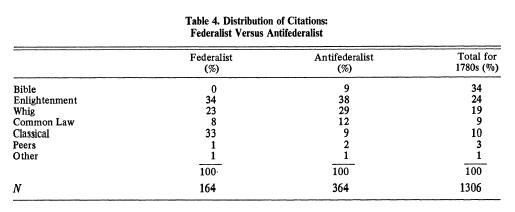Without any mention of Eric Metaxas or the Wall Street Journal, David Barton, on his Wallbuilders program today, described the exact illustrations and arguments used by Metaxas in his WSJ article “Science Increasingly Makes the Case for God.” Barton referred to Carl Sagan’s two criteria for planets capable of sustaining life and then he said scientists have discovered that 200 perfect conditions must be met for a planet to have life. Barton refers to the Friday segment as “good news Friday.” In this case, the good news according to Barton and crew is that scientists are now leaning toward intelligent design.
Here is the link to the episode. The discussion of Metaxas’ article comes within the first 10 minutes.
Other than Barton’s embellishments, this is a description of the WSJ article. For instance, at 5:36 Barton tells his co-hosts:
BARTON: Now that they know that there are 200, they’re getting this movement in the scientific community toward what we call intelligent design. As a matter of fact, the guy who coined the term ‘Big Bang’, are you ready for this? Fred Hoyle, and he’s the astronomer who coined the term ‘Big Bang’ said that his atheism was quote ‘greatly shaken’ unquote at the new developments.
GREEN: Wow!
BARTON: He later wrote that quote ‘a common sense interpretation of the facts suggests that a super intellect has monkeyed with the physics, as well as with the chemistry and biology. The numbers one calculates from the facts seem to me so overwhelming to put this conclusion almost beyond question.’ That’s atheist astronomer.
Metaxas wrote in his WSJ article:
Fred Hoyle, the astronomer who coined the term “big bang,” said that his atheism was “greatly shaken” at these developments. He later wrote that “a common-sense interpretation of the facts suggests that a super-intellect has monkeyed with the physics, as well as with chemistry and biology . . . . The numbers one calculates from the facts seem to me so overwhelming as to put this conclusion almost beyond question.”
Barton focused on two main points: one, scientists have discovered that no planets (“bubkis”) are in the habitable zone and two, that there are 200 criteria necessary for earth-like life. Both of these points are disputable. As I noted in a prior post, NASA has identified eight planets in the habitable zone, and Metaxas has not provided a source for his contention about 200 parameters. The one source I know Metaxas pointed to, a research brief by Jay Richards for the Discovery Institute, identified only 22 parameters.
Could could NASA not know this? Here’s @FreemarketJay‘s “List of Fine-Tuning Parameters”. There are lots more! http://t.co/3LRgoTVbib.
— Eric Metaxas (@ericmetaxas) January 14, 2015
In fact, Richards cautions against identifying a broad number of parameters.
In discussing fine-tuned parameters, one can take either a maximal or a minimal approach.
Those who take the maximal approach seek to create as long a list as possible. For instance, one popular Christian apologist listed thirty-four different parameters in one of his early books, and maintains a growing list, which currently has ninety parameters. He also attaches exact probabilities to various “local” factors.
While a long (and growing) list sporting exact probabilities has rhetorical force, it also has a serious downside: many of the parameters in these lists are probably derived from other, more fundamental parameters, so they’re not really independent. The rate of supernova explosions, for 290 instance, may simply be a function of some basic laws of nature, and not be a separate instance of fine-tuning. If you’re going to legitimately multiply the various parameters to get a low probability, you want to make sure you’re not “double booking,” that is, listing the same factor twice under different descriptions. Otherwise, the resulting probability will be inaccurate. Moreover, in many cases, we simply don’t know the exact probabilities.
“Rhetorical force” is a good description of what Metaxas used in his WSJ article.
This rhetoric made an impression on David Barton who liked it so much, he appropriated it as his own and added some rhetorical force of his own.
